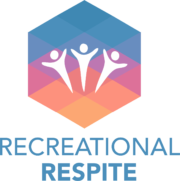Imagine a house that could find your eye glasses, remind you to eat your vegetables, monitor your blood pressure and heart rate as you walk across the bathroom floor, and prompt your 80-year-old mother who has dementia through the process of toileting and washing her hands. And if she fell down, the house could also call for help.
A decade ago, when Alex Mihailidis was a master’s student and came up with the idea of an intelligent home to support people through the various stages of life, even fellow scientists considered the concept far-fetched.
Today, Dr. Mihailidis is a highly-regarded, published researcher and in-demand speaker for major conferences on aging and technology, where there are “all kinds of sessions on this type of work,” he says. “I guess we were ahead of our time.”
Dr. Mihailidis’ pioneering work—inspired by a colleague whose wife had early-onset Alzheimer’s disease—has led him to be named Toronto Rehab’s Barbara G. Stymiest Chair in Rehabilitation Technology Research.
The research chair is “recognition of Alex and the fact that we really believe his field of research has an important future here,” says Dr. Geoff Fernie, Vice President, Research, at Toronto Rehab. “We’re an applied institution, which means we believe that within a reasonable timeframe, this work will have important implications for the people we serve.”
A biomedical engineer and associate professor of occupational science and occupational therapy at the University of Toronto, Dr. Mihailidis oversees a group of diverse researchers with backgrounds in engineering, computer science, occupational therapy, speech-language pathology and gerontology. The team’s goal is to develop “zero-effort technologies that are adaptive, flexible and intelligent, to enable users to participate fully in their daily lives.”
Visit http://www.torontorehab.com/Spotlight/Slider-Content-1.aspx to read more…
